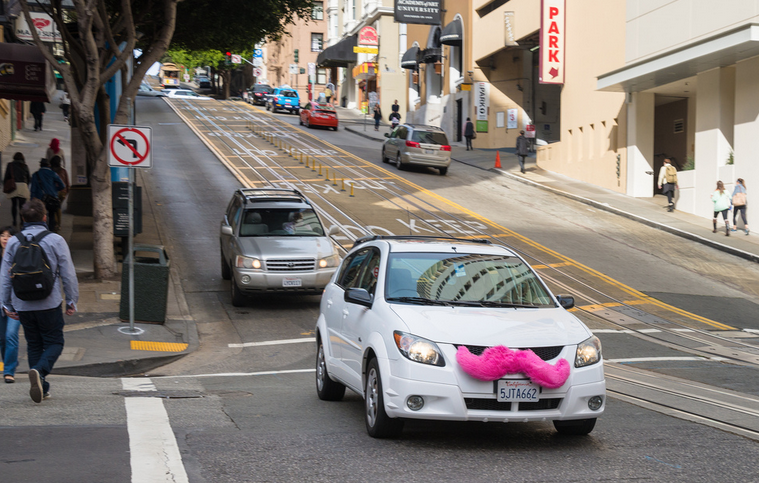As controversy around Lyft and Uber continues unabated, a new and interesting wrinkle emerges. This week, both companies announced products that enable people who are headed in the same direction to actually share a ride.
Lyft’s Lyft Line and Uber’s UberPool, two strikingly similar services, coordinate drivers and multiple passenger pickups so that several people going to the same area can ride in the same car. Both services are currently in beta in San Francisco. Sidecar, a company that sits in a very distant third place in the market behind Lyft and Uber, also recently announced Shared Rides, their version of the service.
In an article for the Washington Post, Emily Badger, writes, “The idea is both the logical next layer to everything [Lyft and Uber] have built thus far and a sign of their ambitions to supplant much more than Friday night cab rides.”
This year, we’ve seen Mutual Aid in Motion.
From scaling sharing hubs to Mutual Aid 101 trainings, we’re helping communities build the tools they need.
Every dollar fuels lasting resilience – proving that when we move together, we all move forward.
As Badger points out, Lyft claims that 90 percent of its rides replicate similar trips that someone else is taking within five minutes, and according to a MIT study, 80 percent of all taxi trips in New York City could be shared. These shared rides offer passengers discounted rates off of regular fares. Uber says a shared ride will cost 40 percent less and Lyft is promising up to 60 percent off. The hope seems to be that the rate drops will make Lyft Line and UberPool viable as everyday commute solutions.
Admittedly, these apps have a high cool factor, but they also pose questions: Is this real ridesharing or carpooling? Or just like sharing a cab? Does this bring us any closer to community-owned and controlled ridesharing or taxis? Shouldn't we be concerned that the ambitious visions of these companies to be the go-to transportation method in cities could undermine public transit and lead to private monopolies?
While the companies would certainly like us to think that this is, first-and-foremost, a way to reduce greenhouse emissions, get more cars off of crowded city streets, and provide affordable, convenient transportation options, both Uber and Lyft are big companies, valued at $18.2 billion and $700 million respectively. There’s a lot of pressure on them to grow, and fierce competition between them for market share. They wouldn’t be offering these services if it wasn’t good for them. We should think carefully about the tradeoff that we may be making as a society — that we forsake local self-determination for convenience.
##
Photo by Sergio Ruiz (CC). Follow @CatJohnson on Twitter

